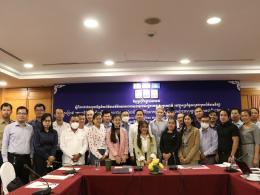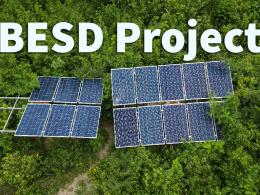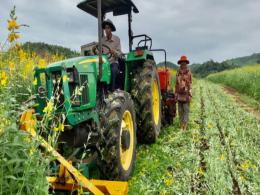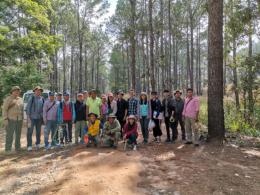Mainstreaming Climate Change and Increasing Resilence in the Education Sector
Background
Climate change has negative impacts on children’s education through exposure to extreme temperatures, floods, droughts and storms. On the other hand, education plays an important role in developing capacities to combat climate change. Increasing environmental awareness and education on the climate crisis can contribute to the effective reduction of greenhouse gas emissions and to adapting to a changing climate in both the short- and long- term.
This project will primarily benefit to primary, lower and upper secondary students, trainers at provincial teacher training centers, teachers, communities and education officers of selected provinces of Cambodia through training, capacity building, and improvements for better resilience of school infrastructures. The existing Eco-school model in pilot secondary schools will be reviewed, while a similar approach will be designed and tested for primary schools. This will be accompanied by dedicated WASH and health interventions for teachers and students.
Overall Objective
The overall objective of the project is to improve capacities of education officers, teachers, and students on climate change so that they can participate in basic climate change mitigation and adaptation initiatives and minimize its impacts on education
Specific Objectives
1. Develop teaching and learning materials on climate change education for primary schools and pilot these materials through Eco-schools;
2. Develop booklets on climate change response and support increasing resilience of pilot primary schools through WASH training and climate-smart investments supporting WASH and health;
3. Provide mentoring and strengthening to Established Eco- schools for sustainable Implementation; and
4. Develop booklets on climate change response and support Increasing resilience of secondary Eco-schools through WASH training and climate-smart investments supporting WASH and health.
Approach
The project aims to increase the capacities of targeted primary and secondary educational officers, teachers, primary and secondary school students on climate change. This will be done mostly in the context of Eco-schools, and with participation from the concerned provincial teacher training centers. In addition, WASH materials will be developed and piloted in a broader number of schools (no just Eco-schools). The project will also support investments in climate change resilience and
demonstration projects in a few targeted schools so that teachers and students can participate in practicing basic climate change mitigation and adaptation initiatives and minimize its impacts on education. Results from this pilot project will be documented and fed into sector level discussions on how to scale up the integration of climate change in the education sector. The project will benefit 21,412 students (9,923 female), 726 teachers (300 female), 106 school principals (39 female). It will be conducted jointly by the Department of Curriculum Development and the Department of School Health.
Outputs and Key Activities
| Result | Key Activities |
|---|---|
|
|
|
|
|
|
Knowledge Products
• Teaching and learning materials on climate change for primary education • Lessons learnt on Eco-schools at secondary level • Booklet on WASH and climate change • End-line survey on target schools’ vulnerability to climate change and WASH performance
| Timeframe | Total Budget | Partners | Location |
|---|---|---|---|
|
February 2021–July 2023 |
USD 299,320.00 USD 250,000.00 (From CCCA3) |
N/A |
Kampong Chhnang, Svay Reing Stung Treng , Kampong Speu, Kampot, Kratie and Battambang Province |






